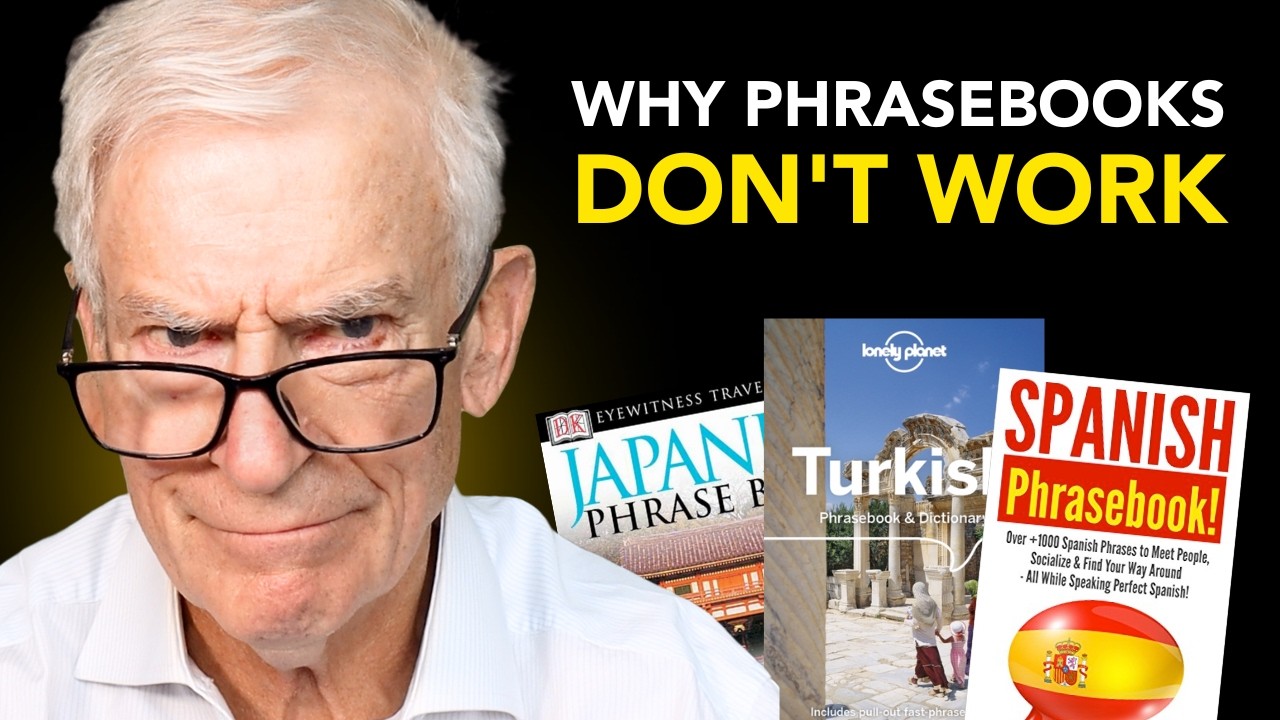In this week’s video, Steve reflects on what has and hasn’t worked for boosting his language skills for travel and shares his (very ambitious!) Turkish learning plan. Don’t miss it!
I cannot imagine learning so many words in a relatively short time. I do wonder if the well known polyglots such as Steve Kaufmann have unusually good memories, or an unusually developed ability to put words into long term memory. Brain imaging has shown that London taxi drivers have enlarged hypocampi as a result of their learning so many routes. So perhaps excelling in languages is genetic, or due to training, assuming of course that a difference does exist.
When I was first learning German in Germany, I found a phrasebook worked fine. It gave me confidence to start speaking, and I learned a lot of useful phrases. It got me to the point where I knew a bunch of the phrases I often used, especially directions and checking in at youth hostels, and that was enough to form a basic foundation.
And let’s face it, if you’re in a country for a couple of weeks to a couple of months, it’s true that you’re not going to get beyond the very basics, but that’s really all you need. Sure, it would be best if you can get more vocabulary under your belt before visiting a country, but I think it’s wrong to dismiss phrasebooks out of hand.
Maybe it’s not for everyone, but I think this may be one of those things that works for some people but not for others.
He is starting from 9000 words. Still a lot to get through! but he is at least pretty familliar with the language, so he should get back into the swing of things pretty quickly from where he left off.
On the phrasebook criticism. I agree, may work for some not for others. I know I tried to learn a bunch of phrases when I visited Japan. I really only learned a couple. However, I did learn the hiragana and katakana. That was helpful in a couple of situations to identify a restaurant or store. I am a sucker for phrasebooks and have fun with them, even if I don’t quite get enough of it out for a trip. A lot more time would’ve needed to be invested in learning the phrasebook.
I mostly think this is because when you do this, you’re trying to go through the entire phrasebook at once and try to learn things from to many subject areas. In a very short period of time. There’s not nearly enough repetition and focus on learning maybe one or two sections and then moving on. You can actually learn quite a bit from a phrasebook in the same way we might from LingQ…it is however, a bit boring.
And you are limited to small amount of vocabulary…however, it’s probably some of the most useful vocabulary in everyday interactions. Focus on the “social” section and the “food” section, and others that would be most important in everyday life. Then throw in some of the others if you may need them (i.e. travel, etc.).
I agree regarding the phrasebook. I didn’t try to learn all of it - just the stuff I knew I needed.
To keep his marketing for LingQ up to date, I think Steve should learn some new ideas.
Phrasebooks may not be for everyone, but they are a nice place to start. Today you can copy/paste a bunch of phrases into ChatGPT, ask it to make a story with them, import them into LingQ, create an automatic audio, learn them and repeat them.
I guess that wouldn’t hurt at all. Would it?
